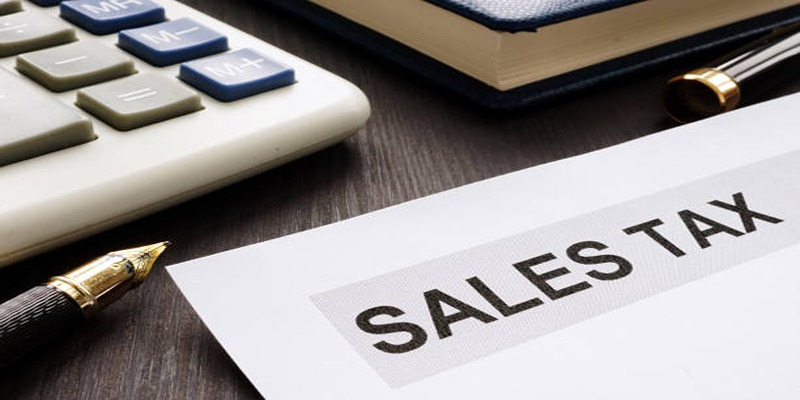All You Need to Know About Personal Finance
Nov 30, 2023 By Triston Martin
Taking control of your money by aligning it with your financial situation and creating a budget for spending and saving are crucial aspects of personal finance. Personal finance is about dividing your money based on what you earn, what you need, and what things cost. Budgeting is all about keeping track of your income and how you use it. By managing your finances, you can have a stable and self-determined life. Let's explore why personal finance is important.
What is Personal Finance?

The heart of personal finance is handling your money to reach your financial goals. It involves looking at how much you earn each month, the regular expenses like rent or insurance, and how much you want to save or invest.
Your financial goal could be big, like saving for a home down payment or retirement, or small, like putting away 50 euros monthly or buying your first stock. Simply put, personal finance is personal. Start by figuring out what you want to achieve, then work out how much money to set aside each month to reach that goal.
So, personal finance is an ongoing thing. Keeping track of your finances is a lifelong habit. As we grow and change, our financial needs and situations can too. It's smart to check in on your financial goals regularly and make any adjustments needed.
What Makes One's Own Finances Important?
Research has found that one of the main causes of stress for people is their own money. Worrying about bills, getting into debt, or fearing job loss can lead to anxiety, sadness, and trouble sleeping, which isn't good for your mental well-being. Managing your personal money directly and having a clear plan can help reduce stress and make you feel more stable.
Having good financial management skills is crucial for a secure and independent life. We make financial decisions every day, from small things like buying morning coffee to big ones like getting a mortgage. That's why it's important to regularly check your personal accounts and learn how to handle money as soon as you can.
Tips and Tricks for Gaining Maximum Financial Benefits
Let’s have a look at some of the tricks for gaining maximum financial benefits.
Financial Safety
It's not a great idea to keep all your cash at home since burglars could break in anytime. Natural disasters like fires and floods could also ruin your money. So, a bank account is the safest place to keep your money. Picking a trustworthy bank solves the problem of keeping your funds secure. Even during tough economic times, many banks provide financial guarantees.
Convenience
Having a bank account lets you get your money whenever and wherever you want. You can do it online, with a debit card, at ATMs, or by going to a bank branch. There are also different ways to send money to someone right away.
Savings and Investments
You can grow your wealth by saving and investing money through banking. It's not just about retirement and current accounts—there are many other useful options. Savings can be a lifeline during a sudden job loss or financial challenges. Meanwhile, investing in mutual funds can help your wealth grow significantly over time.
Grow your Assets
Personal finance is not just about saving for necessities; it's about choosing the right investments to make your money grow. In simpler terms, personal finance is important because it helps you build up money for future needs and ensures your financial security. With the right financial strategies, you can achieve your future goals and retire comfortably. To truly become an expert in personal finance, it's important to know tried-and-true tactics and ideas.
Plan your Investments
Being careful with your money makes investing easier. Take Subash for example. Since he got his first salary at 24, he's been making steady investments. How? He made plans to simplify his investments. With personal finance, you can also make smart investments if you have clear short- and long-term goals.
Stay Away from Debts
Getting into the habit of EMI (Equated Monthly Installment) can be tempting, especially with the "buy now, pay later" idea. These payments are usually manageable, especially if you have a steady income. However, some folks tend to go overboard and accumulate huge debts that become difficult to handle. Having debt can be a heavy burden. When you handle your money well, you can steer clear of taking on debt that you can't repay. This is one of the key advantages of understanding your own money and making financial plans.
What are the Areas of Personal Finance?

The pillars of financial wellness are protection, investing, saving, spending, and income.
- Revenue
Personal finance starts with your income. It's the total amount of money you receive, which you can use for spending, saving, investing, and protecting. Your total revenue includes money from dividends, salary, and other sources.
- Expenses
Most of your money goes out of your pocket through spending. Anything you use your salary to buy is considered spending. This includes things like rent, mortgage, food, hobbies, dining out, furniture, home repairs, vacations, and entertainment.
- Savings
After you've paid all your bills, the money left over is what you have. The goal is to have enough to handle big bills or unexpected costs. It can be tough not to spend everything you earn this way, but everyone should try to save around three to twelve months' worth of money. This helps cover any changes in how much you earn and spend.
- Investing
Investing means buying things like stocks and bonds to make money grow. The idea is to end up wealthier than when you started. But keep in mind not all investments go up in value; there's a chance they might even lose money, so there's a bit of risk involved.
- Protection
Protection is about taking steps to keep your assets safe and protect yourself from unexpected things like illness or accidents. It includes planning for retirement and what happens to your things after you're gone, as well as having insurance for your health and life.
Conclusion
Now that you know why managing your personal money is important, are you excited to start this great habit? This in-depth guide has exactly what you need. Keep reading this article to discover various aspects of personal finance, such as investments, insurance, taxes, and more.

Total Visa Credit Card
Nov 30, 2023
If you're a poor creditor, you can only get a secured credit card that requires you to put up hundreds of dollars as a security deposit. The non-secure Total Visa Credit Card offers an alternative.

What is an Interest Bearing Checking Account
Dec 10, 2023
Get the convenience of a checking account and the benefit of earning interest with an Interest Bearing Checking Account. Learn about how this type of account works, why it might be ideal for you, and what Cash App does to help manage your funds now!

Navigating Tax Season: 10 Essential Tips for Managing Unemployment Income
Mar 21, 2024
Discover key insights on managing tax implications for unemployment income, including tips on deductions, reporting income, and minimizing tax burdens.

Complete Guide to Paying for College: Strategies and Tips
Nov 05, 2024
To establish an overall budget that lists all money inflows and outflows, you would need to begin to afford college with no headache.

Trading Options: A Primer
Nov 09, 2023
This article briefly introduces options trading, touching on the fundamental ideas, methods, and dangers you should be aware of. This guide will help readers successfully traverse the world of options trading by providing an in-depth overview of options, their varieties, and trading methods and concerns.

What's A Debit Balance?
Jan 28, 2024
The term "margin debit balance" is commonly used in the investment and banking industries to indicate the amount of money due to a broker or lender. If you have borrowed money from your broker to make an investment or withdraw cash, you may have a negative balance in your margin account..

SBB High Yield Savings for Businesses: An In-Depth Analysis
Mar 18, 2024
Discover how SBB's High Yield Savings Account offers businesses the opportunity to maximize their interest earnings with no fees or minimum balance.

Texas Sales Tax Simplified: Rates, Calculators, and Responsibilities
Oct 16, 2024
Discover how Texas sales tax compliance works, including calculator usage and the importance of accurate collection and reporting for businesses.

Moving Average Bounce Trading System
Oct 13, 2023
The Moving Average Bounce Trading System aims to find the mean value of fluctuating stock prices. This smoothed-out value enables them to make informed decisions about how and when it is best to trade.

Debit Card Minimums
Feb 18, 2024
Because companies are not compelled to take any particular form of payment, having a policy that exclusively accepts cash is perfectly lawful. Because of the high expense of credit card processing fees, several companies have decided to accept cash payments exclusively.

What are Green Tax and ESG Tax Credits: What Accountants Need to Know
Mar 16, 2024
Let’s understand the world of Green Tax and ESG Tax Credits with our simple guide. Discover how these incentives drive sustainability and environmental responsibility.

Choosing Your Key to Hotel Rewards: World of Hyatt vs. IHG Credit Cards
Jan 28, 2024
Are you torn between World of Hyatt and IHG Credit Cards? Give this article a thorough read to discover the perfect fit for your travel goals and rewards preferences.